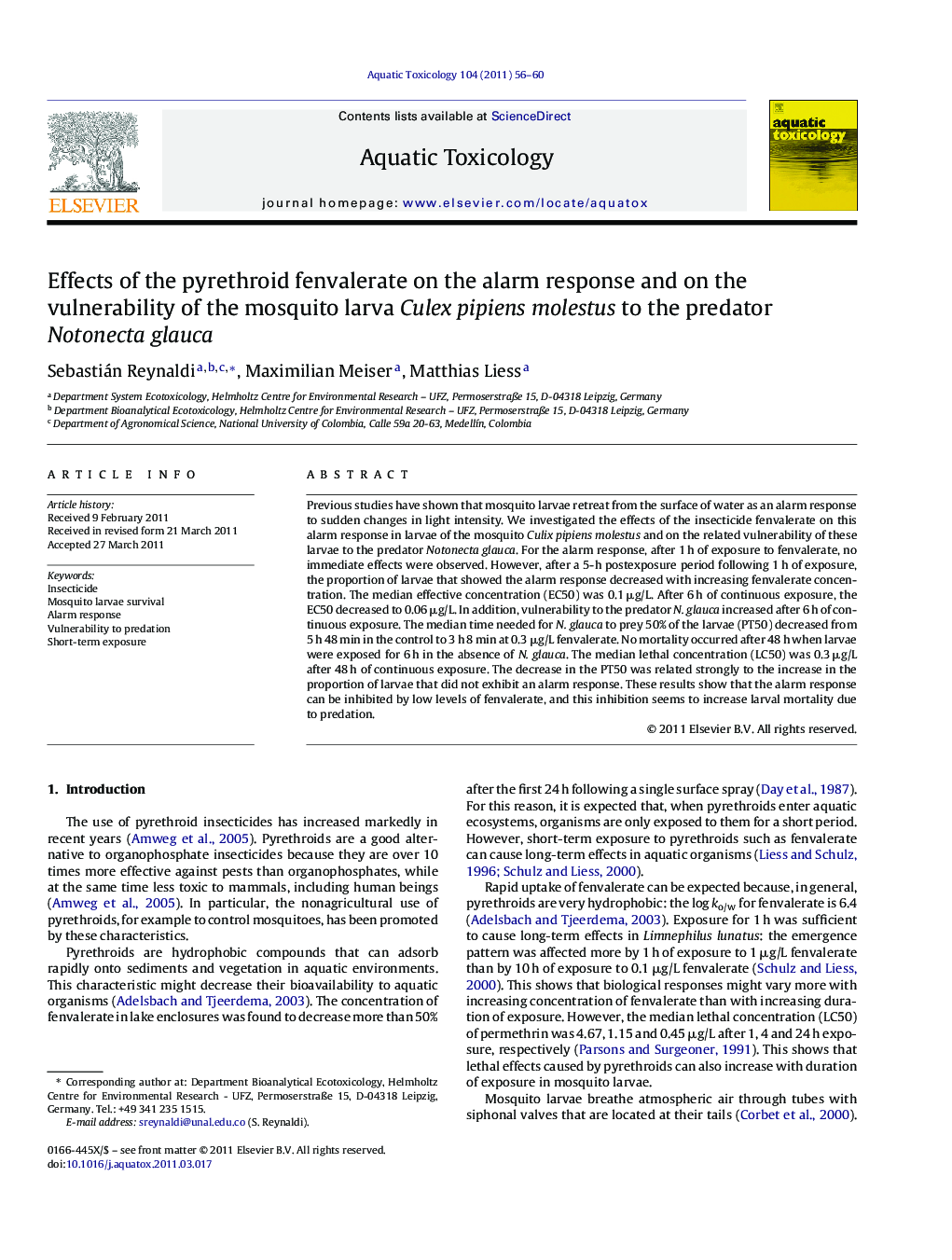| کد مقاله | کد نشریه | سال انتشار | مقاله انگلیسی | نسخه تمام متن |
|---|---|---|---|---|
| 4529889 | 1625986 | 2011 | 5 صفحه PDF | دانلود رایگان |

Previous studies have shown that mosquito larvae retreat from the surface of water as an alarm response to sudden changes in light intensity. We investigated the effects of the insecticide fenvalerate on this alarm response in larvae of the mosquito Culix pipiens molestus and on the related vulnerability of these larvae to the predator Notonecta glauca. For the alarm response, after 1 h of exposure to fenvalerate, no immediate effects were observed. However, after a 5-h postexposure period following 1 h of exposure, the proportion of larvae that showed the alarm response decreased with increasing fenvalerate concentration. The median effective concentration (EC50) was 0.1 μg/L. After 6 h of continuous exposure, the EC50 decreased to 0.06 μg/L. In addition, vulnerability to the predator N. glauca increased after 6 h of continuous exposure. The median time needed for N. glauca to prey 50% of the larvae (PT50) decreased from 5 h 48 min in the control to 3 h 8 min at 0.3 μg/L fenvalerate. No mortality occurred after 48 h when larvae were exposed for 6 h in the absence of N. glauca. The median lethal concentration (LC50) was 0.3 μg/L after 48 h of continuous exposure. The decrease in the PT50 was related strongly to the increase in the proportion of larvae that did not exhibit an alarm response. These results show that the alarm response can be inhibited by low levels of fenvalerate, and this inhibition seems to increase larval mortality due to predation.
Journal: Aquatic Toxicology - Volume 104, Issues 1–2, July 2011, Pages 56–60